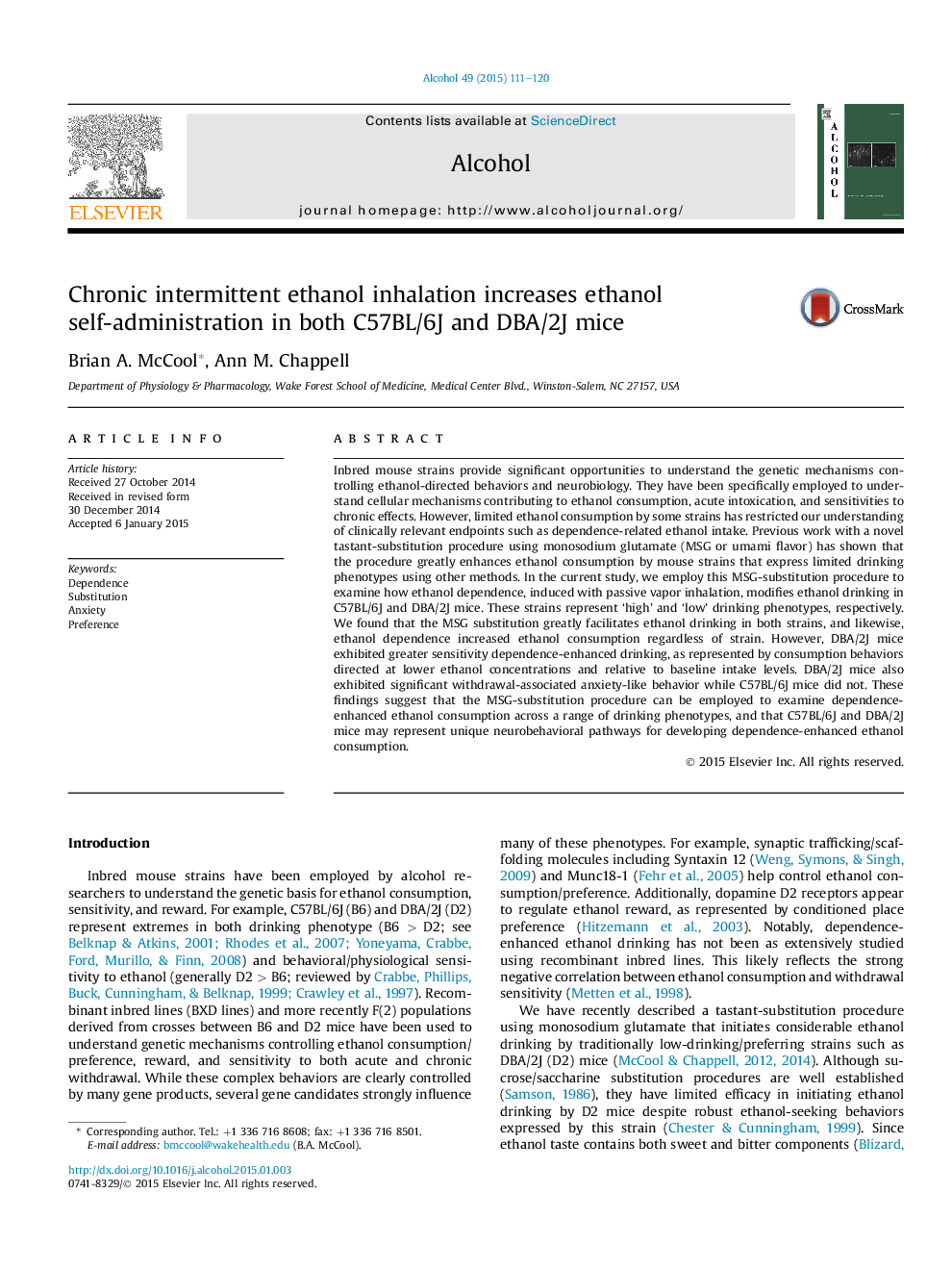| کد مقاله | کد نشریه | سال انتشار | مقاله انگلیسی | نسخه تمام متن |
|---|---|---|---|---|
| 1066903 | 948852 | 2015 | 10 صفحه PDF | دانلود رایگان |
• MSG substitution initiates ethanol intakes independent of MSG preference.
• DBA/2J ethanol drinking is more sensitive to dependence than in C57BL/6J mice.
• DBA/2J, but not C57BL/6J, mice express withdrawal-related anxiety.
Inbred mouse strains provide significant opportunities to understand the genetic mechanisms controlling ethanol-directed behaviors and neurobiology. They have been specifically employed to understand cellular mechanisms contributing to ethanol consumption, acute intoxication, and sensitivities to chronic effects. However, limited ethanol consumption by some strains has restricted our understanding of clinically relevant endpoints such as dependence-related ethanol intake. Previous work with a novel tastant-substitution procedure using monosodium glutamate (MSG or umami flavor) has shown that the procedure greatly enhances ethanol consumption by mouse strains that express limited drinking phenotypes using other methods. In the current study, we employ this MSG-substitution procedure to examine how ethanol dependence, induced with passive vapor inhalation, modifies ethanol drinking in C57BL/6J and DBA/2J mice. These strains represent ‘high’ and ‘low’ drinking phenotypes, respectively. We found that the MSG substitution greatly facilitates ethanol drinking in both strains, and likewise, ethanol dependence increased ethanol consumption regardless of strain. However, DBA/2J mice exhibited greater sensitivity dependence-enhanced drinking, as represented by consumption behaviors directed at lower ethanol concentrations and relative to baseline intake levels. DBA/2J mice also exhibited significant withdrawal-associated anxiety-like behavior while C57BL/6J mice did not. These findings suggest that the MSG-substitution procedure can be employed to examine dependence-enhanced ethanol consumption across a range of drinking phenotypes, and that C57BL/6J and DBA/2J mice may represent unique neurobehavioral pathways for developing dependence-enhanced ethanol consumption.
Journal: Alcohol - Volume 49, Issue 2, March 2015, Pages 111–120
